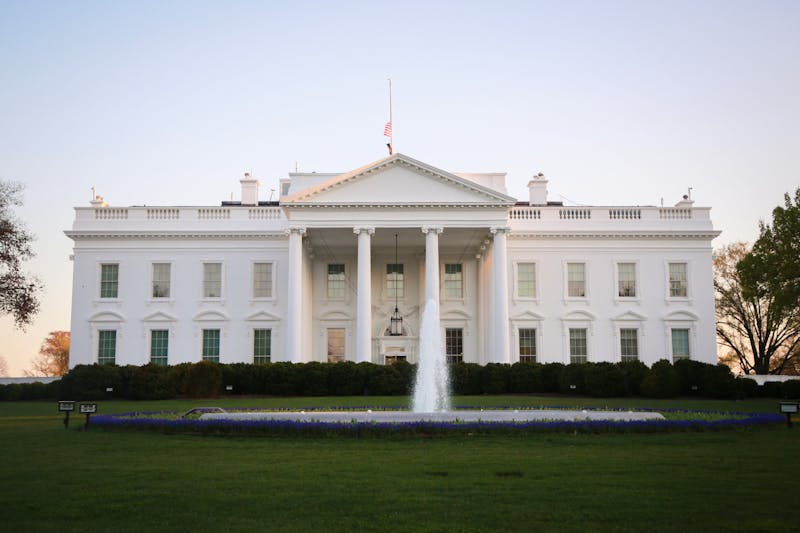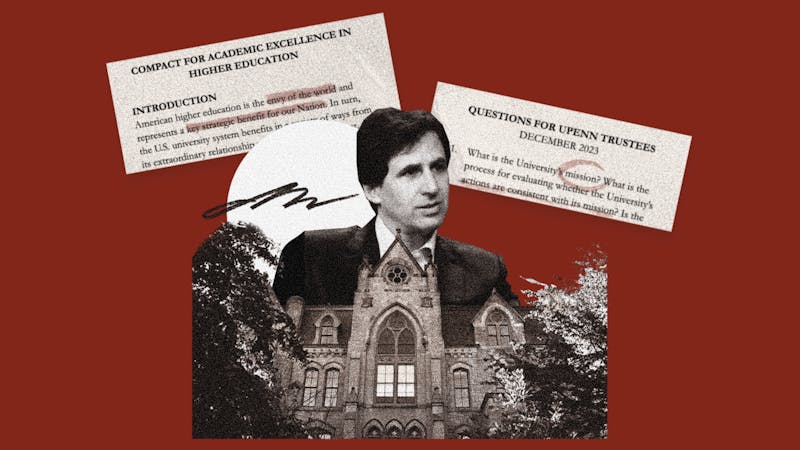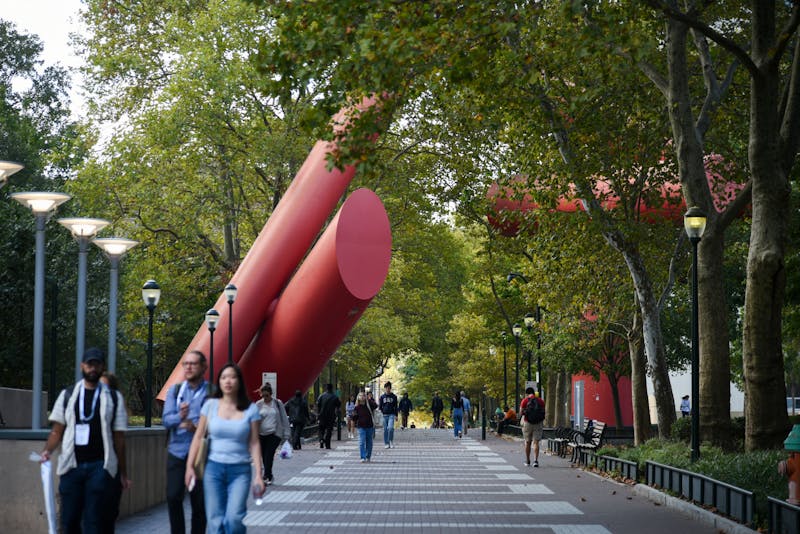
Last week, Sen. John Kerry was interviewed on MTV's Choose or Lose, during which he was asked predictably useless questions, such as, "Are you cool?" and "What musical and cultural movements interest you?"
It was, nevertheless, interesting that his answer to the former was as muddled as the Massachusetts senator's view on a host of other things. And it was comically surreal to hear a Beacon Hill Yalie deem hip hop respectable poetry; Kerry sailed with the Kennedys, who quoted Aeschylus, and he admires 50 Cent?
There is, however, no comedy in the way young people are treated in our political system. Goethe wrote, "The destiny of any nation, at any given time, depends on the opinions of its young men under 25." Given that a great majority of American young people take for granted their citizenship in the world's greatest democracy, the future of this country seems foreboding, if not imperiled -- this from a generation that saw, in tears of liberation from Berlin to Cape Town to Moscow, the sanctity of its freedom.
But while we are ultimately responsible for our apathy, it seems narrow to say that those of us born in the '80s are just lazy. Perhaps after our baby boomer parents discovered that no amount of protest could make them the Greatest Generation, we in turn realized that the New Left politics of guilt are incompatible with our '90s maxim: "If it feels good, do it." And of course, there are a great number of those, many of them young, who feel that we just need to be energized by Rock the Vote, that political apathy can be cured with an injection of pop enthusiasm.
Never mind that the people on MTV are much better looking than those on C-SPAN. At its root, much of this analysis rests on an inverted principle: Some think that kids will only vote if they're treated like kids; in fact, that is precisely why we don't vote. The notion of a "youth" politics is the most degrading and dangerous form of identity politics in America today, most simply because, like so many of our social institutions, it does not give kids any credit.
The enveloping of political exhortation in a cloak of popular culture is the height of paternalism. The idea that the world of my generation can be boiled down into the utter simplicity of a Britney obsession is absurd. Were the 1960s only about the Beatles? Presenting politics as something as simple as a rock concert creates a cognitive dissonance that can result only in apathy.
I have no illusions that our generation is tougher than that which died to save the world, but consider that we live in a world where one can watch 3,000 people die on national television, a place in which every sexual encounter is a life or death situation. We know that there are things that are terrifying and that matter, and we have opinions about them. Hence bubblegum voter activism assumes an innocence of which we are innocent.
What is more, to presume generational unity is na‹ve if not disingenuous. It is more than the fact that we don't all like the same music. Why should the most diverse generation in American history be presumed to be the same merely because we are the same age? This is a veil of homogeneity of the kind that spawned the Yippies, and those who would pull it over our eyes ultimately court nothing but the same kind of generational conflict.
For in their patronizing neutrality, rock politics imply that we are simply too young for serious critique. While most of us read the Socratic maxim that the unexamined life is not worth living, we are told to vote simply for the sake of doing so. If we were merely interested in voter turnout, we could require it, but we don't because a free society depends upon the recognition that freedom is valuable and depends upon our responsibility.
This, incidentally, casts doubt on why, for the sake of democracy, we should exhort people to vote who don't see it as important in the first place. But we should nevertheless be critical of those who treat us as if being critical was something only for adults. After all, we are constantly told from Convocation onward that, in the words of Mario Savio, "the university is the place where people begin seriously to question the conditions of their existence and raise the issue of whether they can be committed to the society they have been born into."
The infantilizing of "youth" politics is most ridiculous when coupled with the fact that we live in a categorical society, one in which our race, religion, ethnicity, gender, sexuality, even our inclination toward meat -- in short, being ourselves -- are political statements. This world of identity politics, particularly those of "youth," simultaneously defines maturation as a comfort with who we are, and in so doing, makes adolescence itself a political act. No wonder, then, that my generation does not vote; for most of us, growing up is hard enough already.
Justin Raphael is a sophomore American history major from Westport, Conn. Uncommon Sense appears on Tuesdays.
The Daily Pennsylvanian is an independent, student-run newspaper. Please consider making a donation to support the coverage that shapes the University. Your generosity ensures a future of strong journalism at Penn.
DonatePlease note All comments are eligible for publication in The Daily Pennsylvanian.







